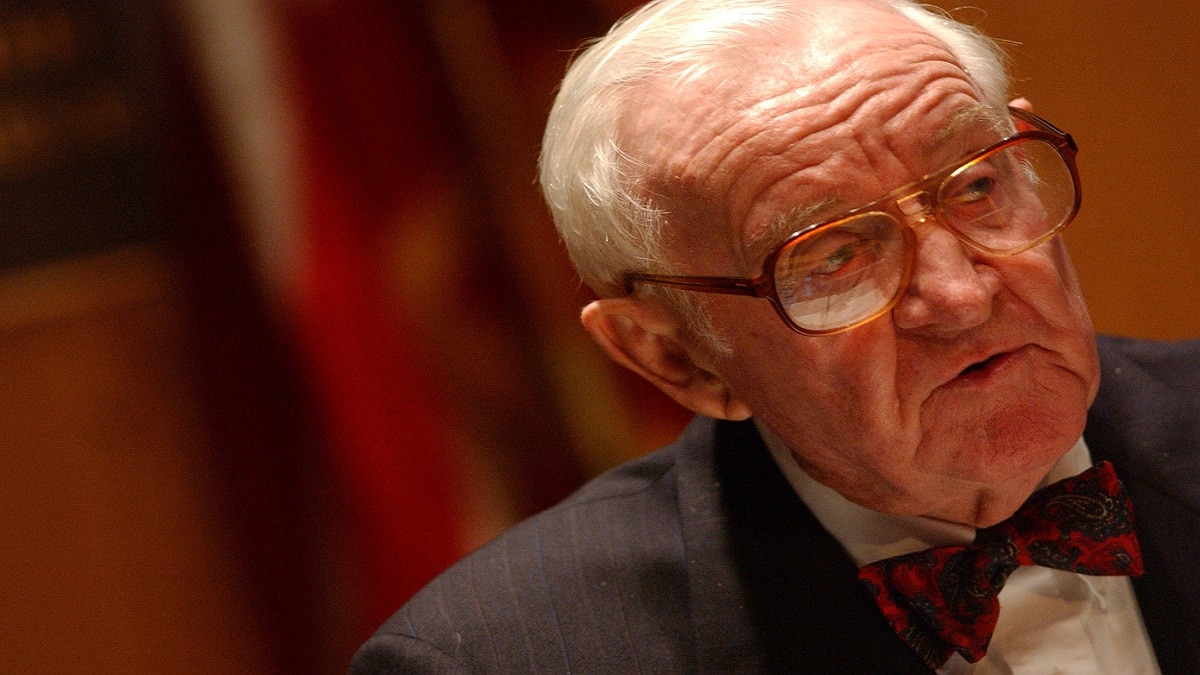
Former U.S. Supreme Court Justice John Paul Stevens died on Tuesday at the age of 99 due to complications following a stroke he suffered on Monday.
According to a statement released by the Supreme Court, Stevens “passed away peacefully” at the Holy Cross Hospital in Ft. Lauderdale, Florida, with his two daughters and other family members by his side.
Stevens was one of the longest-serving Supreme Court Justices in U.S. history, serving 35 years in the U.S. Supreme Court.
“He brought to our bench an inimitable blend of kindness, humility, wisdom, and independence. His unrelenting commitment to justice has left us a better nation,” Chief Justice John Roberts said in a statement.
Stevens is survived by his daughters Elizabeth Jane Sesemann and Susan Roberta Mullen. He also had nine grandchildren and 13 great-grandchildren.
Who was Justice John Paul Stevens?
John Paul Stevens was born in the South Side of Chicago, Illinois, on April 20, 1920. He graduated from the University of Chicago in 1941 and from the Northwestern Law School in 1947. He served in the U.S. Armed Forces during the Second World War (1942 -1945 ) as a codebreaker.
He went on to study law after the war. He served as a clerk to U.S. Supreme Court Justice Wiley Rutledge in 1947 and was admitted to practice law in Illinois in 1949.
Republican President Gerald Ford appointed him to the Supreme Court in 1975.
John Paul Stevens was one of the longest-serving U.S. justices. He retired from the Supreme Court in 2010 after serving 35 years. President Barack Obama nominated Justice Elena Kagan to replace him in the court.
Although he was appointed by Republican President Gerald Ford, he evolved from the ideological center and became one of the Supreme Court’s most consistent defenders of liberal ideals. His views on several issues such as abortion, gun control, gay rights, the death penalty and separation of Church and State reflected his espousal of liberal ideals.
He was known for writing powerful and biting dissents when he found himself in the minority, and it is claimed that he wrote more dissenting opinions than any other Supreme Court Justice in U.S. history.
He wrote a dissent in the 2000 Supreme Court decision (Bush v. Gore) that halted Florida ballot recounts during the presidential election, handing the presidency to George W. Bush.
“Although we may never know with complete certainty the identity of the winner of this year’s presidential election, the identity of the loser is perfectly clear,” he wrote.
After his retirement in 2010, he continued to express his views on issues affecting the court. He spoke out during the confirmation struggle between Democrats and Republicans over President Trump’s Supreme Court nominee Brett Kavanaugh, saying that Kavanaugh’s partisan comments made him unfit to become a member of the Supreme Court.